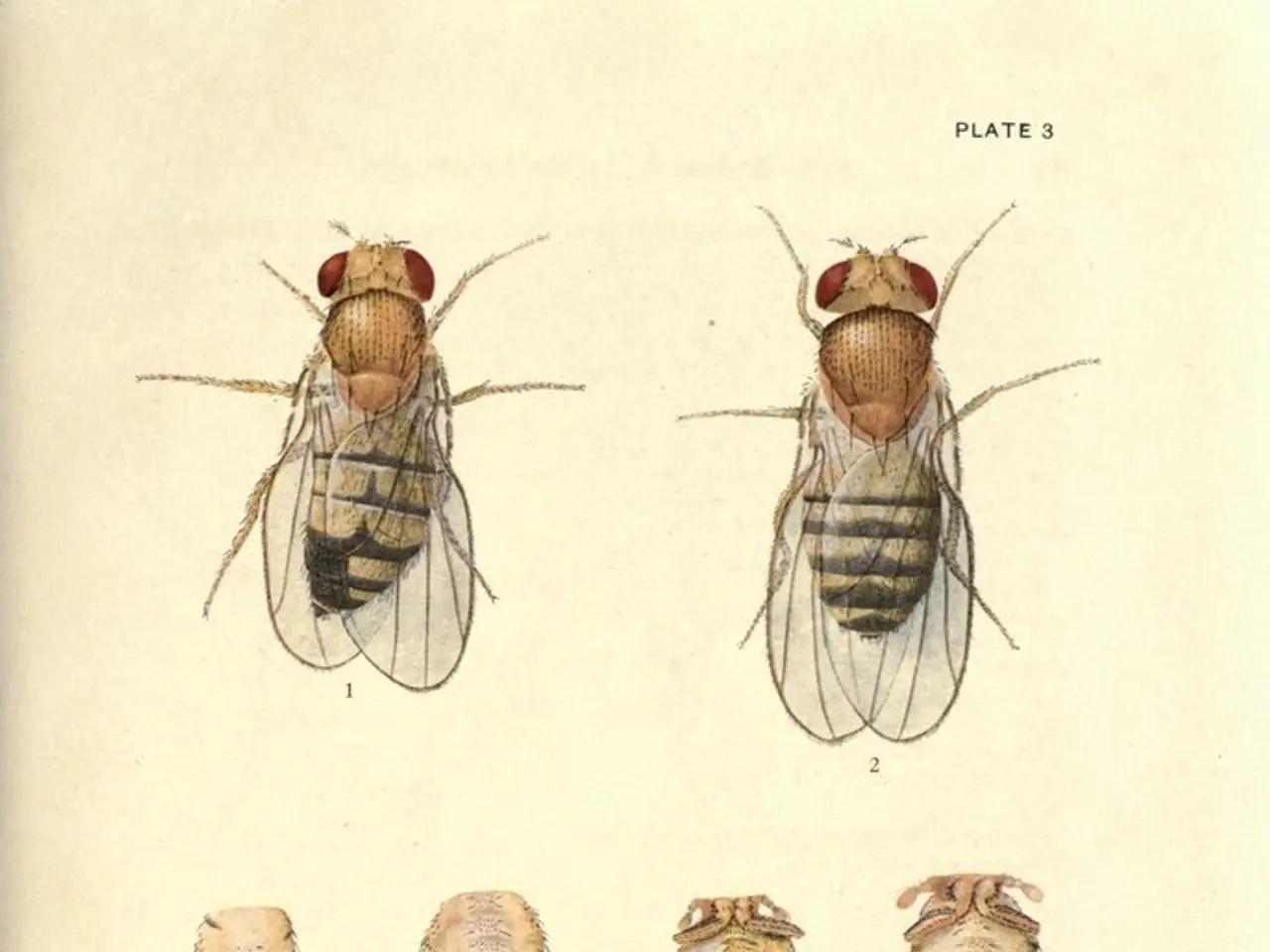Strategies for Controlling Pests in Your Backyard Orange Trees
In the thriving backyard gardens of many homeowners, common citrus tree pests like aphids, spider mites, and whiteflies can pose a significant challenge. However, effective organic methods offer a solution to this problem.
Biological Control
Encouraging or introducing beneficial insects such as lady beetles (ladybugs), lacewings, and parasitic wasps can naturally reduce aphid populations and other sap-feeding pests. Planting flowering cover crops or hedges provides habitat and alternative food sources for these beneficials, while avoiding broad-spectrum insecticides helps preserve them[1].
Cultural and Physical Practices
Regular monitoring of new shoots and undersides of leaves for early pest colonies is crucial. Prompt pruning and disposal of infested or sooty branches help prevent the spread of pests. Avoid excessive nitrogen fertilization, which encourages soft growth attractive to aphids. Water plant bases rather than leaves to reduce mold growth and maintain good airflow by proper pruning and spacing. Physical removal such as strong jets of water can dislodge aphids, spider mites, and whiteflies effectively[1].
Natural Sprays and Homemade Remedies
- Neem Oil: Acts as an organic insecticide and repellent effective against aphids, whiteflies, and spider mites. It disrupts insect growth and feeding while being safe for beneficial insects if used correctly[1][3].
- Insecticidal Soaps and Horticultural Oils: These smother soft-bodied pests like aphids and mites without harmful chemicals[1].
- Garlic and Hot Pepper Spray: A homemade spray made by infusing garlic and hot pepper in water with some mild soap repels many insect pests including aphids, whiteflies, and spider mites. It’s important to apply this spray to leaves, especially undersides, avoiding sunny times to prevent leaf burn[2].
Companion Planting
Growing plants that repel or disrupt pests near citrus trees can help. For example, basil can repel aphids and whiteflies, and garlic can repel mites, providing a natural garden-wide pest barrier[2].
Together, these strategies form an integrated organic pest management approach that reduces pest damage on citrus trees in backyard gardens without harmful chemicals, promotes ecological balance, and supports plant health. Frequent monitoring and combining methods are key for effective control[1][2][4].
Yellowing leaves might indicate aphids or spider mites, while sticky residue on leaves is a sign of aphids or whiteflies. Pests can weaken citrus trees, making them more susceptible to disease. To prevent this, homeowners can water their trees early in the morning to avoid fungal issues and introduce beneficial insects like ladybugs to help keep pest populations low. Regularly checking plants for any signs of pests is also essential for early detection and treatment.
References:
[1] University of California Agriculture and Natural Resources. (2021). Pest Management Guidelines: Citrus. https://apm.ucanr.edu/scientific/citrus/
[2] Cornell University Cooperative Extension. (2021). Organic Gardening: Pest Management. https://nysipm.cornell.edu/ipm/resources/homegarden/index.html
[3] National Pesticide Information Centre. (2021). Neem Oil. https://npic.orst.edu/factsheets/neemgen.html
[4] United States Environmental Protection Agency. (2021). Integrated Pest Management. https://www.epa.gov/pesticides/integrated-pest-management
Plants such as basil and garlic, utilized for companion planting, can offer a natural repellent against common pests like aphids, whiteflies, and spider mites, contributing to a healthier home-and-garden lifestyle. Additionally, embracing organic methods like introducing beneficial insects, such as lady beetles or parasitic wasps, and employing natural sprays like neem oil or garlic and hot pepper spray, can help control these pests and maintain a harmonious home-and-garden ecosystem, promoting a lifestyle that combines gardening with public health and environmental sustainability.




